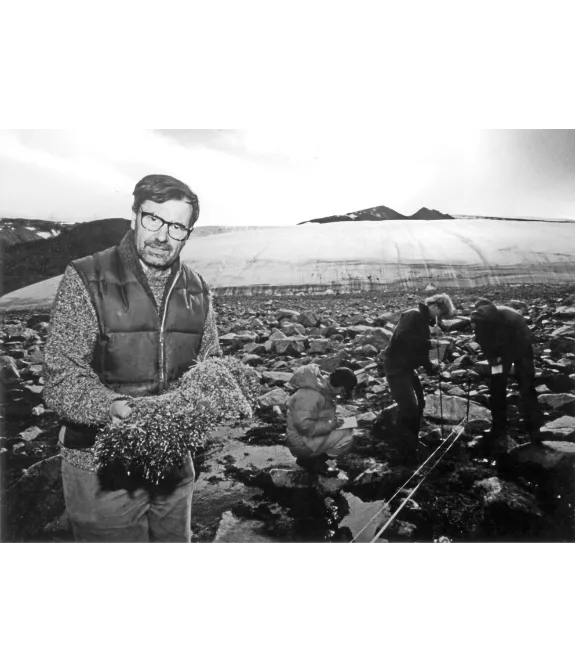
Biology Professor Emeritus Josef Svoboda appointed Officer of the Order of Canada
Among the 120 new appointments to the Order of Canada announced on December 27, 2019 by the Governor General is UTM Biology Professor Emeritus Josef Svoboda.
Professor Emeritus Josef Svoboda was appointed Officer of the Order for his pioneering research on tundra ecosystem and for his lifelong mentorship of scientists studying the Arctic.
The Order was established to pay tribute to those who exemplify the highest qualities of citizenship and whose contributions enrich the lives of fellow Canadians.
Professor Svoboda's life story represents a triumph of the human spirit.
He was imprisoned for more than eight years by the communist Czech government for his democratic beliefs and spent three of those years in hard labor at an uranium mine. During the Soviet Army's suppression of Prague Spring (Czechoslovakia) in 1968, he defected to Canada. He was 40 years old when he arrived in Canada with no job, no university degree and at the age of 45 he earned his PhD at the University of Alberta in Edmonton in Arctic plant ecology. For his PhD thesis, he painstakingly measured the extremely low growth rates of tiny arctic plants living in this polar desert, measurements that were added to modern vegetative maps of the world and serve as a reference for changes in plant growth as a result of global change.
In 1973 he was hired as Visting Assistant Professor at the University of Toronto Mississauga, three years into his PhD studies. In 1974 (with his PhD completed) he was hired as Assistant Professor.
The research program he established in the Canadian Arctic along the shores of Hudson's Bay was the beginning of a long and illustrious career in Arctic plant ecology. He and his students amassed long term data on little known arctic plant communities, studied the taxonomy and ecology of arctic plants in polar oases, and established the baseline ecological data for tracking effects of global change in high Arctic habitats.
One of Josef’s longest-running studies was at Baker Lake near the northwest coast of Hudson’s Bay to which he and his students returned for 14 years amassing long-term data on little-known arctic plant communities. Josef’s greatest passion was for the polar oases occurring within the dry and cold polar deserts that characterize much of the high arctic. He, his students, and colleagues studied the taxonomy and ecology of arctic plants along altitudinal gradients in these regions as well as effects of muskox grazing on the plant communities. One such oasis was Alexandra Fjord on Ellesmere Island, a relatively warm habitat for the high Arctic because it is in a sheltered valley where heat absorbed by surrounding cliffs is radiated back into the valley.
His research also has been directed at more applied problems in the Arctic context from developing the Green Igloo farms for northern communities to produce an abundance of beets, turnips, parsnips, broccoli, potatoes and a variety of other vegetables to documenting the reach of radioactive fallout even to remote regions of the globe.
Through his own research and that of his students, Professor Svoboda has become an internationally recognized expert in Arctic Ecology. He published more than 60 scientific papers. He was part of the tundra ecologists who formed in 1990 the International Tundra Experiment (ITEX) and he served as Canada's representative on the steering committee. He received the Northern Science Award and Centenary Medal, Department of Indian and Northern Affairs in 1994. The Josef Svoboda Czech Arctic Research Station located on Svalbard Norway and run by the University of South Bohemia, Czech Republic was named in his honour in 2016.
To learn more about Professor Svoboda's life, his contribution to Arctic plant ecology and the numerous awards he received in Canada and Czech Republic, we urge you to read his autobiographical book "Wine from Raisins".
